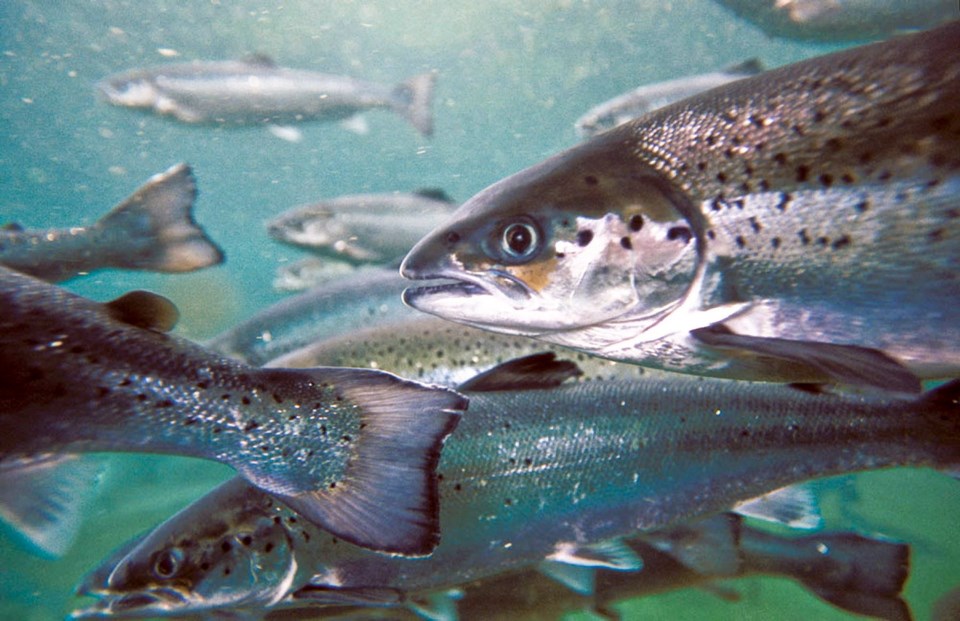A pledge by more than 50 federal candidates of various political stripes in B.C. to shut down open-net salmon farming in the province by 2025 has made it into the federal Liberal Party’s platform, to shock and dismay of the salmon farming industry and First Nations that depend on it.
Wildfirst, an anti-fish farm lobby group backed by high-profile B.C. business people, has collected pledges by more than 50 federal candidates in B.C., who have committed to the phase-out of open net fish farms by 2025.
Wildfirst is dedicated to “the removal of salmon farms from Pacific coastal waters as soon as possible.”
So far, eight federal Liberal candidates in B.C. have signed the Wildfirst pledge committing to the phasing-out of open-net salmon farms. Twenty-one B.C. NDP candidates have signed it. No Conservative candidates in B.C. have yet signed the pledge.
To date, federal Fisheries and Oceans Minister Jonathan Wilkinson has not responded to the Wildfirst request to sign its pledge.
But it’s now irrelevant whether Wilkinson or any other Liberal candidate in Canada agrees with the pledge or not because it’s now an official Liberal Party plank.
“In British Columbia, we will work with the province to develop a responsible plan to transition from open-net pen salmon farming in coastal waters to closed containment systems by 2025,” the Liberal platform states.
John Paul Fraser, executive director of the B.C. Salmon Farmers Association, said the new Liberal campaign promise is shocking, and suggests it knee-caps the Liberal government’s own fisheries minister.
“He just got screwed by his own party,” Fraser said.
He said Wilkinson has worked with various interest groups and stakeholders in B.C. to convene a special advisory group to look at salmon farming, and commissioned a study that looked at various technology approaches for sustainable aquaculture.
“His party just decided that everything that has gone into that report, and all the time those people have spent around that committee table and don’t bother meeting anymore, because it s been decided for you,” Fraser said.
The problem with the promise to phase out open-net salmon farms and move them onto land in just six years is that land-based systems have not yet proven to be economically viable. And if they ever do, at some point, it may make more sense to locate them close to their markets — San Francisco, for example, as opposed to Campbell River or Alert Bay.
“This is a reckless policy, not grounded in science, and it will threaten good middle-class jobs across Canada,” said Timothy Kennedy, CEO of the Canadian Aquaculture Alliance.
Stewart Muir, executive director for Resource Works, was shocked to see the promise to phase out open-net fish farms make it into the Liberal platform, released Monday. “If they want to do this, they should be more honest and simply say it’s a Liberal commitment to end employment for 6,000 people on the B.C. coast and close down the most valuable British Columbia agricultural export,” Muir said.
Some First Nations in B.C. are adamantly opposed to fish farming and want it shut down. Others depend on the industry for jobs and lease revenue.
Chief John Smith of Tlowitsis First Nation near Campbell River said he was shocked to learn the federal Liberal Party has targeted B.C.’s fish farming industry.
Smith said his band has an agreement with Grieg Seafood Canada that provides his band with about $1 million in revenue annually — revenue that would be lost if open-net salmon farms are shut down.
“We’ve been working with the fish farms for quite a few years now, and we’re very happy with it because it provides us with a steady source of income,” he said. “It’s not like forestry, which is up and down like a yo-yo. And we don’t have any other industries.”
Don Noakes, former director of the Pacific Biological Station and current dean of the faculty of Science and Technology at Vancouver Island University, sees the Liberal plank on salmon farming as a backward step.
Noakes authored a paper last year, Oceans of Opportunity, that urged the Canadian government increase aquaculture production.
Aquaculture is the source of animal protein that has the smallest environmental footprint, in terms of energy, land and water use and greenhouse gas emissions. Sustainable aquaculture is supported by conservation groups like World Wildlife Fund and the Nature Conservancy.
“I can only speculate on the reasons for this policy pledge, but it is certainly not based on any credible scientific evidence,” Noakes said. “Canada has enormous potential for significant increases in aquaculture production but this policy is counterproductive to say the least.”



